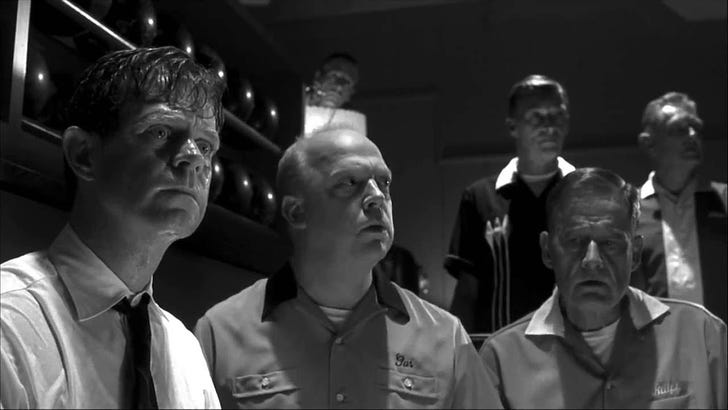Any idea of the normal currently in circulation is not an accurate map of what is customary for a human to be. We are — each one of us — far more compulsive, anxious, sexual, tender, mean, generous, playful, thoughtful, dazed, and at sea than we are encouraged to accept.
–Alain de Botton
Maria Popova looks at Alain de Botton’s explanation of toxic normalcy, the idea that it’s a myth to think that there is a specific, single way to live a good life. A.R. Moxon looks at another strain of this conversation: the revulsion some people have to being called “weird,” and their need to assert “We are The Normal Ones.” Moxon points out a distinction between “those who celebrate weirdness and those who would eradicate weirdness.”
But are storytellers internalizing this message, even unintentionally? Are they self-editing out what they see as too far from “the norm,” or running into gatekeepers unable to see the value in a unique story? For example, Priya Sridhar examines Pete Docter’s statements that Pixar movies like Turning Red and Elemental were not films with “clear mass appeal,” and that the studio is pivoting because their movies “should be less a pursuit of any director’s catharsis and instead speak to a commonality of experience.”
Lincoln Michel sees toxic normalcy in authors striving to make characters likable instead of allowing them to be weird and/or unlikeable:
A character who is somehow at odds with society feels more alive than one who is fitting in swimmingly. Their viewpoint is unique because it is off-kilter from everyone else’s.
This urge to conform to a consensus view includes criticism and fandom, like how Freddie deBoer tackles the frequently regurgitated argument that Max isn’t the main character of Fury Road.
Consider the kind of storytelling that can happen when storytellers give permission to let their unique perspective out:
Evasive discusses Symbiopsychotaxiplasm, a documentary about the making of a documentary about the making of a short film (that the actors don’t know is a fake film).
Bryan Young unpacks the structure and influences of WandaVision, a show fusing the history of TV sitcoms with superhero stakes.
Screenprism breaks down the storytelling and production techniques that made Legion a unique show about the internal trauma and delusions of a psychic mutant in a way that explodes the standard heroic origin story.
Cinema Tyler delves into H.R. Giger’s contributions to Alien, and its haunting atmosphere.
Thomas Flight looks for answers to a question so many have asked: Why are David Lynch movies so weird?
It’s tempting to sand down the rough edges to seem more palatable. To try and predict what would be popular instead of pursuing what’s interesting. To take the opinions of the gatekeepers and naysayers to heart.
It’s harder to hold on to the idea that the umbrella of normal covers a wide variety of human experience and thought, and that there are many more types of experience that can be relatable, worthy of focus, and popular.
It’s harder, but it’s true.
👋 Are you new here?
Inneresting is a weekly newsletter about writing and things that are interesting to writers. Subscribe now to get more Inneresting things sent to your inbox.
Coming Soon: The New Highland
We’re beta testing the next version of Highland for Mac, iPad, and iPhone!
Are you interested in getting a sneak peak at the best writing app on the planet?
Previously on Inneresting…
In case you missed it, last issue’s most clicked link April Henry offers a list of career options to consider if you need help brainstorming, including a list of professions that could be entitled to legal compensation for asbestos exposure.
What else is inneresting?
Annie Mueller on how failure doesn’t mean that everything has fallen apart.
Zain Mankani on the the work of architect Lebbeus Woods, whose idea of post-war reconstruction flew in the face of conventional rebuilding strategies: Using what remains of buildings to build something new, salvaging scarce resources, and memorializing the injustice that forced the new construction.
Tom Cox on how life after the inevitable collapse of the internet in 2029 will mean more rather than fewer arguments with strangers.
And that’s what’s inneresting this week!
Inneresting is edited by Chris Csont, with contributions from readers like you and the entire Quote-Unquote team.
Are you enjoying this newsletter?
📧 Forward it to a friend and suggest they check it out.
🔗 Share a link to this post on social media.
🗣 Have ideas for future topics (or just want to say hello)? Reach out to Chris via email at inneresting@johnaugust.com, Mastodon @ccsont@mastodon.art, or Bluesky @ccsont.bsky.social




